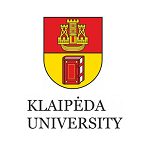TEACHERS’ SELF-CARE STRATEGIES AND SUPERVISION AS A SELF-CARE ACTIVITY FOR TEACHERS
Last modified: 15.03.2022
Abstract
Covid-19 pandemic has caused unprecedented challenges for teachers and the resources of teachers have been critically exhausted causing fatigue and burn-out. Self-care actualization and practice is one way to strengthen teachers' emotional health and resilience. Self-care is understood as engagement in activities to preserve or improve one’s own health and well-being, in particular during periods of stress. Supervision is one of the activities where teachers can receive professional support, minimize negative emotions and develop stress resilience. The aim of this study was to investigate teachers' self-care strategies and experts’ views on actualization of self-care strategies and supervision as a self-care activity within supervision. The research was executed in two stages - quantitative data analysis and qualitative interviews. In the quantitative part the participants of the research were 245 teachers in Latvia. Self-Care Strategies Questionnaire was used to collect answers and the 14 strategies were measured on a 4-point Likert scale. Self-care strategies were assessed on what is considered important and is attainable. The results showed that there are statistically significant differences between importance and attainability in all 14 self-care strategies. All strategies were assessed higher on importance than the attainability. Experts indicated that supervision should take place during working hours, be publicly funded, regular and carried out as long-term support.
Keywords
References
Ansley, M.B., Houchins, E.D., Varjas, K., Roach, T.A., Patterson, D., & Hendrick, C.R. (2021). The impact of an online stress intervention on burnout and teacher efficacy. Teaching and Teacher Education, Vol. 98. DOI: https://doi.org/10.1016/j.tate.2020.103251
Baker, N.C., Peele, H., Daniels, M., Saybe, M., Whalen, K., Overstreet, S., & Trauma-Informed Schools Learning Collaborative The New Orleans. (2021). The Experience of COVID-19 and Its Impact on Teachers' Mental Health, Coping, and Teaching. School Psychology Review, 50(4), 491-504. DOI: https://doi.org/10.1080/2372966X.2020.1855473
Blinder, B.M., Ansley, M.B., Varjas, K., Benson, T.G., & Ogletree, L.S. (2017). Supporting Students by Maintaining Professional Well-Being in High-Stress Jobs. Learning Landscapes, 10(2), 59-72. DOI: https://doi.org/10.36510/learnland.v10i2.996
Braun, V., & Clarke, V. (2006). Using thematic analysis in psychology. Qualitative Research in Psychology, 3(2), 77-101. DOI: http://dx.doi.org/10.1191/1478088706qp063oa
Crawford, K. (2020). Managing compassion fatigue: Self-care guidebook for helping professionals. [An Honor Thesis/ HONR 499]. Muncie, Indiana: Ball State University. Retrieved from https://cardinalscholar.bsu.edu/bitstream/handle/123456789/202505/2020CrawfordKatie-combined.pdf?sequence=1&isAllowed=y
Dorociak, K.E., Rupert, P.A., Bryant, F.B., & Zahniser, E. (2017). Development of a Self-Care Assessment for Psychologists. Journal of Counseling Psychology, 64, 325–334. DOI: http://dx.doi.org/10.1037/cou0000206
Fantalova, E. (2013). Diagnostika cennostej i vnutrennih konfliktov v obshej i klinicheskoj psihologii. Klinicheskaja i special'naja psihologija.
Herman, K.C., Hickmon-Rosa, J.E., & Reinke, W.M. (2017). Empirically derived profiles of teacher stress, burnout, self-efficacy, and coping and associated student outcomes. Journal of Positive Behavior Interventions 20 (2), 90–100. DOI: https://doi.org/10.1177/1098300717732066
Izglītības kvalitātes valsts dienests. (2021). Līdz gada beigām katrs Latvijas pedagogs varēs piedalīties supervīzijā. Pieejams: https://www.ikvd.gov.lv/lv/jaunums/lidz-gada-beigam-katrs-latvijas-pedagogs-vares-piedalities-supervizija (publicēts 29.06.2021.)
Jovanović, R. V., Hinić, D., Džamonja-Ignjatović, T., Stamatović-Gajić, B., Gajić, T., & Mihajlović, G. (2021). Individual-psychological factors and perception of social support in burnout syndrome. Vojnosanitetski pregled, 78 (9), 944-954. DOI: https://doi.org/10.2298/VSP190820004J
Kim, E.L., Oxley, L., & Asbury, K. (2021). My brain feels like a browser with 100 tabs open: A longitudinal study of teachers’ mental health and well-being during the COVID-19 pandemic. British Journal of Educational Psychology. 92, 299-318. DOI:10.1111/bjep.12450
Latvijas Republikas Ministru kabinets (2021). Tiesību aktu projekti. Projekts: TA-1116. Informatīvais ziņojums "Par psihoemocionālā atbalsta pasākumiem Covid-19 pandēmijas radīto seku mazināšanai". 27.05.2021. Pieejams: http://tap.mk.gov.lv/mk/tap/?pid=40502160
Lindo, N. A., Walen, K. K. M., Ceballos, P., Ohrt, J. H., Prosek, E., Yousef, D., Blalock, S. Yousef, D., Yaites, L., Ener, E., & Blalock, S. (2015). Wellness and burnout prevention: Perceptions of a group supervision intervention. Journal of Professional Counseling, Practice, Theory, & Research, 42(2), 28-42. DOI: https://doi.org/10.1080/15566382.2015.12033947
Maslach, C., & Leiter, M.P. (2017). Understanding burnout. In: C.L. Cooper & J.C. Quick (Eds.), The handbook of stress and health: A guide to research and practice, First edition (p. 36-56). Wiley Blackwell. DOI: https://doi.org/10.1002/9781118993811.ch3
Mārtinsone, K. (sast.). (2021). Pašpalīdzības un pašvadības iespēju arsenāls krīzes un transformāciju laikā: metodes ikvienam. Rīgas Stradiņa universitāte. Pieejams: https://www.rsu.lv/sites/default/files/book_download/paspalidzibas_gramata.pdf
Mārtinsone, A., Perepjolkina, V., & Ruža, A. (2021). Pašpalīdzības stratēģiju (PPS) aptaujas konstruēšana un validitātes raksturojumi. 7. starptautiskā zinātniski praktiskā konference “Veselība un personības attīstība: starpdisciplinārā pieeja”. Rīgas Stradiņa universitāte, 2021. gada 22.-24.aprīlis. Pieejams: https://www.rsu.lv/sites/default/files/imce/Dokumenti/prezentacijas/vpa_2021/pps_skala.pdf
Mārtinsone K., & Zakriževa – Belogrudova M. (2021). Supervīzija. Nacionālā enciklopēdija. Pieejams: https://enciklopedija.lv/skirklis/98499-superv%C4%ABzija
Miller, J.J., & Grise-Owens, E. (2020). Self-Care: An Imperative. Social Work, 65(1), 5–9. DOI: https://doi.org/10.1093/sw/swz049
O'Connor, C. R., Wetherall, K., Cleare, S., McClelland, H., Melson, J. A., Niedzwiedz, L. C., Ronan E. O'Carroll, E. R., O'Connor, B. D., Platt, S., Scowcroft, E., Watson, B., Zortea, T., Ferguson, E., & Robb, K. (2021). Mental health and well-being during the COVID-19 pandemic: Longitudinal analyses of adults in the UK COVID-19 Mental Health & Wellbeing study. The British Journal of Psychiatry. 218(6), 326-333. doi:10.1192/bjp.2020.212
Pāvula, I. (2021). Priekšvārdi. No B. Pumpiņa (sast.), Supervīzija izglītības vidē: Rakstu krājums (9.lpp.). RSU. Pieejams: https://dspace.rsu.lv/jspui/bitstream/123456789/3801/1/IPD-1140_Supervizija_Elektroniskais_izdevums.pdf
Pumpiņa, B. (2021). Supervīzija kā mūžizglītības sastāvdaļa. No B. Pumpiņa (sast.), Supervīzija izglītības vidē: Rakstu krājums (21.-22.lpp.). RSU. Pieejams: https://dspace.rsu.lv/jspui/bitstream/123456789/3801/1/IPD-1140_Supervizija_Elektroniskais_izdevums.pdf
Rancāns, E., Mārtinsone, K., Vrubļevska, J., Aleskere, I., Rezgale, B., Šibalova, A., Perepjolkina, V., Koļesņikova, J., Ruža, A., Šuriņa, S., Paiča, I., Upesleja, G., Bundzena – Ervika, A., & Regzdiņa, L. (2021). Psihiskā veselība un psiholoģiskā noturība un ar to saistītie faktori Latvijas populācijā Covid-19 pandēmijas laikā, turpmākās vadības virzieni. Valsts pētījumu programmas Covid-19 seku mazināšanai apakšprojekta “Covid-19 epidēmijas ietekme uz veselības aprūpes sistēmu un sabiedrības veselību Latvijā; veselības nozares gatavības nākotnes epidēmijām stiprināšana” projekta VPP-COVID-2020/1-0011 ziņojums. Pieejams: https://www.rsu.lv/sites/default/files/imce/Projekti/VPP_COVID/2_darba_paka_gala_zinojums.pdf
Remerte, I., & Pumpiņa, B. (2021). Izglītības jomā strādājošo supervizoru profesionālā kompetence. No B. Pumpiņa (sast.), Supervīzija izglītības vidē: Rakstu krājums (25.-26.lpp.). RSU. Pieejams: https://dspace.rsu.lv/jspui/bitstream/123456789/3801/1/IPD-1140_Supervizija_Elektroniskais_izdevums.pdf
Rupert, P. A., & Dorociak, K. E. (2019). Self-care, stress, and well-being among practicing psychologists. Professional Psychology: Research and Practice, 50(5), 343–350. DOI: https://doi.org/10.1037/pro0000251
Self-care. (n.d.). Oxford Living Dictionary’s online dictionary. Retrieved from https://en.oxforddictionaries.com/definition/self-care
Smetackova, I. (2017). Self-efficacy and burnout syndrome among teachers. The European Journal of Social & Behavioural Sciences. 20(3), 228-241. https://doi.org/10.15405/ejsbs.219
World Health Organization (2020). Mental health and Covid-19. Retrieved from https://www.euro.who.int/en/health-topics/health-emergencies/coronavirus-covid-19/publications-and-technical-guidance/noncommunicable-diseases/mental-health-and-covid-19
Ziede, S. J., & Norcross, C. J. (2020). Personal Therapy and Self-Care in the Making of Psychologists. The Journal of Psychology, 154(8), 585-618. DOI: https://doi.org/10.1080/00223980.2020.1757596








